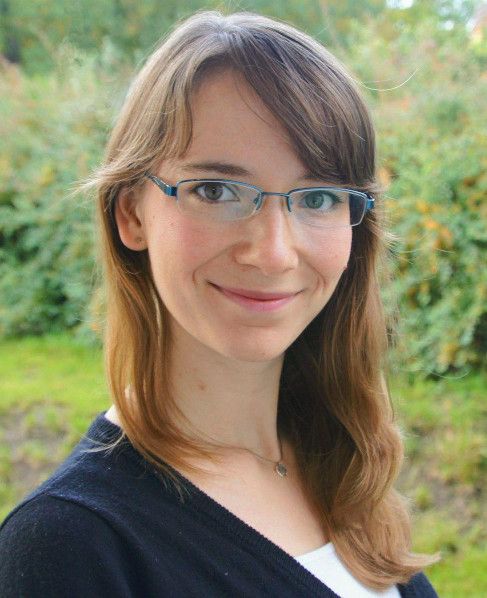
Die Programmiersprache Ruby hat sich nicht zuletzt durch den Erfolg des Web-Frameworks Ruby on Rails einen Namen gemacht. Ihre Anwendungsmöglichkeiten gehen aber weit über das Web hinaus; und wer Rails kennt, kennt noch lange nicht alles, was diese Sprache zu bieten hat.
In diesem Kurs wollen wir mit euch Ruby von Grund auf kennenlernen - mit seiner Eleganz und seiner Ausdrucksstärke, aber auch mit seinen Tücken.
Language: Deutsch
English, Deutsch
Advanced, Programming
Course information
Ruby zeichnet sich durch eine elegante Syntax und einen Fokus auf intuitive Bedienung auf.
Die Sprache verzichtet auf strikte Typisierung und setzt stattdessen auf dynamische Typisierung und das sogenannte Duck Typing.
Ruby-Code wird von einem Interpreter direkt ausgeführt, muss also nicht kompiliert werden.
Dadurch ist Ruby gut geeignet für kleine Skripte, die leicht geschrieben, getestet und ausgeführt werden können.
Zugleich wurde aber auch die Software hinter einigen der größten Webseiten der Welt (z.B. GitHub, früher Twitter) mit Ruby programmiert.
Insbesondere im Hinblick auf die Konzepte der Objektorientierung hat Ruby viel zu bieten.
Hier werden die Einflüsse anderer Sprachen wie Smalltalk (dem Vorreiter der objektorientierten Sprachen) sichtbar.
Aber auch andere Paradigmen wie die funktionale Programmierung haben ihre Spuren hinterlassen.
In vielen Programmieraufgaben wird das Erlernte angewendet und gefestigt.
Auch die Hausaufgaben und die Abschlussprüfung enthalten praktische Elemente.
Dieser Kurs richtet sich an Ruby-Einsteiger, die Lust haben, in die Tiefen dieser Programmiersprache einzusteigen.
Kein Vorwissen ist notwendig.
Erfahrung mit dem Programmieren in anderen Sprachen wird jedoch vorausgesetzt bzw. empfohlen.
Die Code-Beispiele erfordern grundlegende Englisch-Kenntnisse (schließlich sind auch die Schlüsselworte der Programmiersprache englisch).
Eckdaten zum Kurs
- Kurssprache: Deutsch
- Kursstart: 1. Oktober 2018
- Kursende: 29. Oktober 2018
- Kursdauer: 4 Wochen
- Arbeitsaufwand: 3-6 Stunden pro Woche
Zielgruppe
- Ruby-Einsteiger, die Lust haben, in die Tiefen dieser Programmiersprache einzusteigen
- Erfahrung mit dem Programmieren in anderen Sprachen wird empfohlen bzw. vorausgesetzt
Folgen Sie uns auf Twitter: @openHPI. Nutzen Sie den Hashtag #RubyMOOC für Tweets zu diesem Kurs.
Besuchen Sie uns auf Facebook: https://www.facebook.com/OpenHPI
** Achtung**: Dieser Kurs befindet sich aktuell im Selbststudium-Modus, in dem Sie keinen Zugriff auf die bewerteten Hausaufgaben/Prüfungen haben. Daher können wir Ihnen lediglich eine Teilnahmebestätigung ausstellen
Enroll me for this course
Featured content
Learners
Rating
This course was rated with 3.75 stars in average from 4 votes.
Certificate Requirements
- Gain a Record of Achievement by earning at least 50% of the maximum number of points from all graded assignments.
- Gain a Confirmation of Participation by completing at least 50% of the course material.
- Gain an Open Badge by completing the course.
Find out more in the certificate guidelines.
This course is offered by

Franz Liedke received his bachelor and master degrees in IT Systems Engineering from Hasso Plattner Institute. Now employed as a full-stack developer in the openHPI Team, he is responsible for the continued development of the openHPI platform. He supervises student developers, works on new features (and bugs) and enjoys - a little too much? - refactoring existing source code.
He spends his leisure time with his family, at church and with friends, on the soccer pitch or in front of the computer (again!?), where he likes working on several open-source projects, preferrably the freely available forum software Flarum.

Jan Graichen graduated from the Hasso Plattner Institute with a Master of Science degree in IT Systems Engineering. Having developed on the openHPI platform since the very beginning in 2012, he continues his work as a full-time employee. As a Ruby expert he works on openHPIs core systems and designs services and interfaces. His knowledge of Linux operating systems and cloud infrastructures supports the successful operation of openHPI and bridges the gap between application development and system administration.
As an open source software enthusiast, Jan has contributed to many open source software projects and published his own software code. Lots of his open source software projects are used within the openHPI platform and other software projects all around the globe.

Christiane Hagedorn did both her bachelor's and master's degree in Media Informatics at the Beuth University of Applied Sciences in Berlin. Now she is a PhD candidate at the Hasso Plattner Institute and explores the potential of game-based learning in e-learning contexts.
In her leisure time, Christiane is singing in a choir, likes to travel the world, and taking pictures while doing some hikes. She also loves playing digital and non-digital games, which is one of the reasons for choosing her research topic. In the past, she worked on several game projects. In addition, she has developed a great passion for teaching.